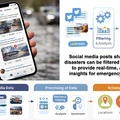
- Press release
- 28 January 2026
Social media data are increasingly being analysed to support disaster preparedness, response, and recovery. A new comprehensive NHESS review examines how such data are being used in disaster management research.
European Geosciences Union
www.egu.eu
Social media data are increasingly being analysed to support disaster preparedness, response, and recovery. A new comprehensive NHESS review examines how such data are being used in disaster management research.
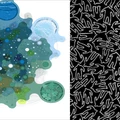
Núria Altimir, a data visualization and data portrait artist, and Fabian Wadsworth, a mixed media visual artist and poet, have been selected for a residency at the next European Geosciences Union (EGU) General Assembly 3 – 8 May 2026.
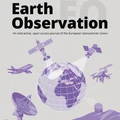
The EGU has this week launched a new publication, Earth Observation, an open-access, two-stage journal with open and public peer review, following the model of other EGU journals, published by Copernicus Publications.
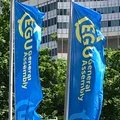
Members of the media, public information officers, and science bloggers are now invited to register for the meeting free of charge. EGU26 will be held from 3 - 8 May, 2026 both onsite in Vienna, Austria, and virtually.
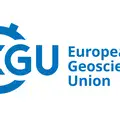
The full results of the Union’s autumn 2025 election are now available.
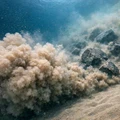
When we think about landslides, we usually picture mountain slopes collapsing after heavy rain or earthquakes. Similar phenomena, often much larger, also occur beneath the sea along continental margins and across the deep ocean floor. Geologists refer to the deposits left behind by these collapses as Mass Transport Deposits, commonly abbreviated as MTDs. When several of these deposits form part of a larger unit, they are sometimes grouped under the term Mass Transport Complexes, or MTCs. MTDs are not rare …
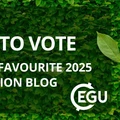
Our EGU blogging team has had a fantastic 2025 posting across our official blog, GeoLog and the division blogs. Most of our readers appreciate EGU’s blogs for their informative yet accessible style, and for our bloggers’ ability to take complex geoscience content and make it fun and relevant to the reader. If this sounds like something you’d like to get involved in, we encourage you to get in touch with your Division blog editors, or email media@egu.eu. To celebrate the …
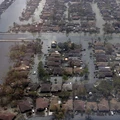
Due to the rapid rise in temperatures, it started raining on the snow and ice-covered roads, prompting the regional public transport operator to suspend all bus services. The rain also resulted in icing on the overhead lines of the main railway line coming into town. Rail traffic was also temporarily suspended. Before the adjacent highway could be salted, several tens of cars were involved in a chain-reaction crash. It took several hours before the highway could be reopened. With no …